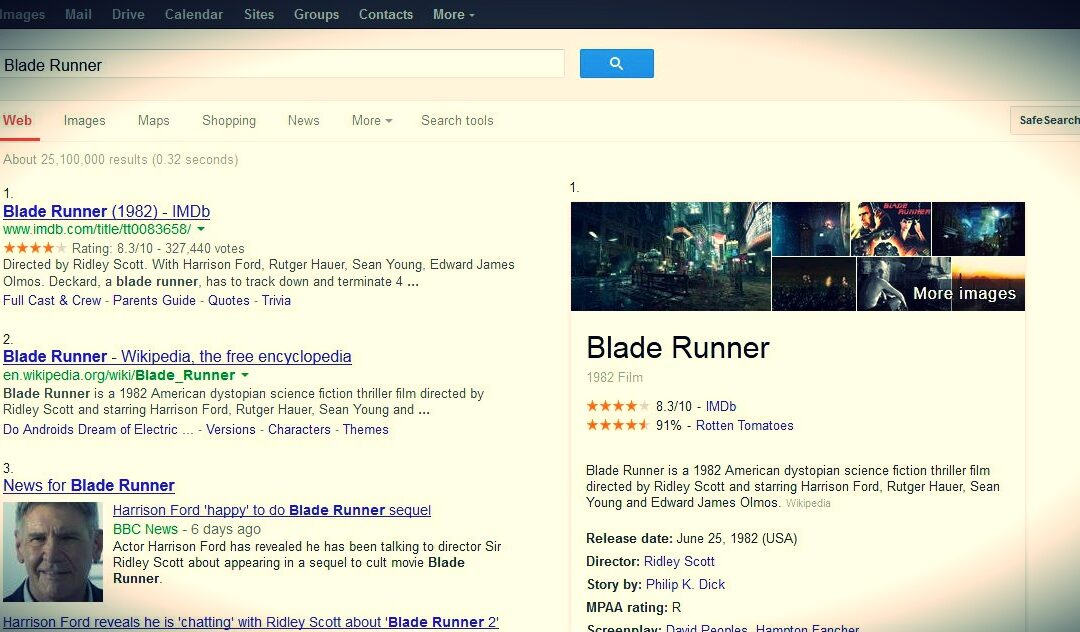One of the most significant changes of Google’s recent Hummingbird update is that data scraped from websites is now being displayed on the results page alongside traditional search results content.
Now, each time a user makes a search enquiry, Google will attempt to provide an ‘answer’ to their question by displaying relevant content either in a box to the side of, or directly above, traditional search results. If, for example, a film fan was looking up Blade Runner, Google will display a list of relevant web address results as usual, but on the right hand side there now appears a brief film description, cast photos, IMDb ratings and even a list of other movies other users have searched for. In the case of a search query related to your resort, Google now scrapes your website to display room prices, photos and links to relevant review sites.
Although this is undoubtedly a helpful update for users, it also promotes a user experience that is purely Google-focused. By making more information readily available on the search results page, the company aims to keep searchers on Google and its properties for as long as possible, which could mean bad news for your website traffic.
So what can you do now that Google is competing for your audience’s attention in this way? It’s vital to offer something valuable that makes it worth your guests’ time to visit your site. The key, once again, is to create useful, highly relevant content that speaks directly to your guests’ needs and keeps them coming back for more.
Related pages and blog posts:

